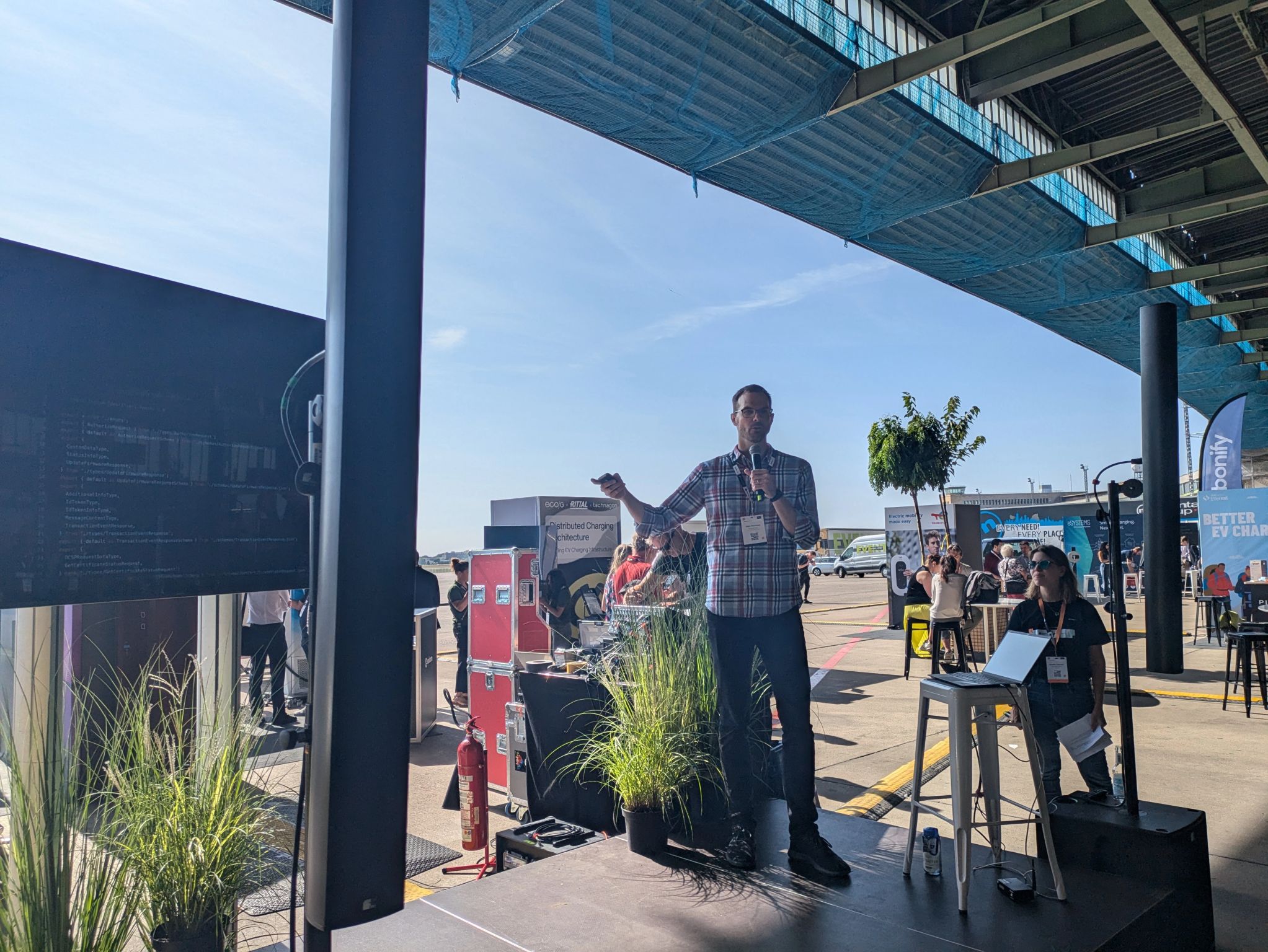ICNC Recap and Video: Exploring Open Source Solutions to EV Charging Reliability
At the 2024 Intercharge Network Conference (ICNC) in Berlin, Alex Thornton, Executive Director of LF Energy, delivered a presentation on how open source can address the reliability challenges of electric vehicle (EV) charging. As the adoption of electric vehicles increases, so too does the demand for a more reliable and seamless charging experience, something Thornton believes can be solved through open collaboration. A summary of the session follows below, and you can view the video of the full session at the end of this post.
The Challenge: EV Charging vs. Gasoline Refueling
Thornton began by contrasting the simplicity of refueling gasoline-powered vehicles with the complexity of charging electric vehicles. He highlighted the user experience disparity: while refueling is as simple as inserting a nozzle into a car, EV charging requires intricate communication between multiple systems, such as the vehicle, the charging station, network operators, and power grids. This complexity results in significant reliability issues – one in four charging sessions fail in the U.S., a stark statistic that hinders the broader adoption of EVs.
The Solution: Open Source Collaboration
To address these challenges, Thornton identified a fundamental problem: although standards exist to facilitate communication between the various components of the EV ecosystem, their implementation often falls short. Different interpretations of the standards lead to compatibility issues, while maintenance and updates across different platforms create further complexity. According to Thornton, the key to overcoming these obstacles lies in open source software, which promotes collaboration and efficient sharing of resources.
In the tech industry, open source has become the backbone of software development. Thornton cited popular open source tools like Kubernetes, Visual Studio Code, and Postgres as foundational elements that enable rapid, secure, and scalable technology development. Open source allows developers to collaborate on shared building blocks while focusing their competitive efforts on value-added innovation. The same model can be applied to EV charging infrastructure to improve interoperability, security, and scalability.
The Role of Open Source in EV Charging
Thornton introduced CitrineOS, an open source EV charging management system that exemplifies how open source can be leveraged to build reliable infrastructure. By developing shared, open source implementations of industry standards, companies can ensure interoperability across different networks, charging stations, and vehicles. This approach not only reduces the cost of development but also speeds up innovation and improves the overall user experience.
He argued for expanding the scope of collaboration in the EV sector to include both the development and implementation of standards. This would eliminate the common pitfalls of inconsistent interpretations and incomplete implementations. With open source reference implementations, all stakeholders can work from the same codebase, ensuring that standards are adhered to consistently and securely.
Open Source and Industry Success Stories
Thornton emphasized that open source is not just for startups or hobbyists but is already embraced by major corporations. For example, the automotive industry has leveraged Automotive Grade Linux (AGL), a collaborative open source platform that brings together leading car manufacturers like Toyota, Mazda, and Volkswagen. Similarly, the banking sector has adopted open source solutions to tackle regulatory challenges, realizing that collaboration, even in traditionally competitive industries, can lead to better outcomes.
The presentation also touched on the broader potential for open source in industries beyond EVs. Thornton mentioned how the film industry has benefited from shared open source tools for computer-generated imagery (CGI), and how companies like Microsoft, which once opposed open source, now embrace it as a core part of their strategy. These examples reinforce the idea that open source can drive innovation and reliability in complex ecosystems like EV charging.
Moving Forward with Open Source in EV Charging
Thornton concluded with a call to action for the e-mobility community. He invited stakeholders to join LF Energy’s EV Charging Special Interest Group to collaborate on developing open source solutions that can enhance charging reliability, security, and scalability. By adopting open source, the EV industry can accelerate the shift to electric transportation, improve the user experience, and create new business opportunities.
Open source is not just a technological solution but a business strategy that can reduce costs, improve efficiency, and foster innovation. As Thornton put it, “Open source is collaboration,” and through collaboration, the e-mobility industry can overcome its most pressing challenges.
